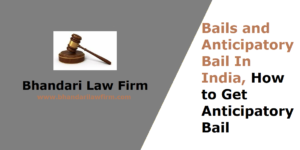DOWRY LAWS IN INDIA: The word ‘dowry’ means the property and money that a bride brings to her husband’s house at the time of her marriage.
Marriage in India is nearly universal, traditionally endogamous in terms of caste, monogamous for both legal and social reasons, and most commonly arranged by the parents or close relatives of the bride and groom. Weddings are lavish social occasions, usually paid for by the family of the bride, and may entail a significant transfer of wealth from the family of the bride to the bride, the groom, or the groom’s family referred to as dowry Dowry Laws In India
Dowry Meaning
In the beginning, it was the voluntary custom, but later on took the shape of a tool to exert pressure on the bride and her parents, in the name of social practice and honor. The dowry at present is a source of both joy and curse in society. It is also a joy to the husband and his relatives who get cash, costly dress, and utensils, furniture, bedding materials, etc. But it is a curse to the bride’s parents who have to bear the enormous costs to satisfy the unreasonable demands of the bridegroom’s party. Dowry Laws In India
Typically, the charged family members in these cases include: Dowry Laws In India
• Mostly women of all ages (unmarried, married sisters of the husband, his mother and sisters-in-law, elderly grandmothers and aunts)
• Other maternal and paternal relatives and even young children in the family.
For every complaint filed by a woman, there are at least twice as many or more women are accused although the married couple may have never lived with any of the people mentioned in the criminal complaint.
LAWS IN INDIA FOR DOWRY PROHIBITION
Although paying and accepting of dowry has been illegal in India, for 55 years under the Dowry prohibition Act (amended in 1984 and 1986) 1961 Despite anti-dowry laws and the constant media campaign against dowry, this social evil is behind the deaths of thousands of women in the country every year such cases, and the law in respect thereof
(Cr.P.C.) and Indian Evidence Act (I.E.A.) is amended as per the criminal law (SecondAmendment) Act, 1983 and was approved by President of India to deal effectively with cases of dowry deaths and also the cases of caused by any burns or bodily injury or circumstances within seven years of her cruelty to married women by their in-laws. has been suitably amended.
IPC Section 304 – B deals with dowry deaths Dowry Laws In India
Indian husband or inlaws for, or in connection husband or relative or in-laws marriage duration and it is clearly shown occurs under abnormal or suspicious renal Code (I.P.C.), Criminal Procedure Code shall be called as “dowry death”, and to cruelty or harassment that soon before her death, she was tortured by her husband or any relative of herWhen the death of a married woman with, any demand for dowry, such death deemed to have caused her death. Whoever commits dowry death shall be punished with imprisonment for a term minimum of seven years which may extend to imprisonment for life.
Read Also: Bail for Offences Under Section 498a and 406 of IPC
IPC Section 498 – A deals with husband or relative of husband of the subjecting her to cruelty Dowry Laws In India
Whoever being the husband or the relative of the husband or in-law of a woman, subjects such woman to cruelty or harassment or torture shall be punished with imprisonment for a term which may extend up to three years and her to pay fine. The cruelty can be either mental or physical torture which drives the women
CrPC Section 176(1) provides inquest by the executive magistrate and CrPC se174(3) provides as follows Dowry Laws In India
When (1) The case involves suicide by a woman within seven years of her marriage (ii) The case relates to the death of a woman within seven years of her marriage in any circumstances raising a reasonable suspicion that some other person committed an offence in relation to such woman, or (iii) The case relates to the death of a woman within seven years of her marriage and any relative of the woman has made a request in this behalf, the police officer will forward the body for autopsy to the nearest medical officer for opinion
Indian Evidence Act section 113 – A deals with presumption as to abetment of suicide by a married woman Dowry Laws In India
When the question is whether the commission of suicide by the woman had been abetted by her husband or any relative husband and it is shown that she had committed suicide within a period of seven years from the date of her manage and her husband or such relative of her husband had subjected to cruelty, the court may presume, having regard to all the other circumstances of the case, that such suicide had been abetted by her husband or by such relative of her husband.
Read Also: Maintenance Under Hindu Law
Indian Evidence Act section 113 – B deals with presumption as to dowry death
When the question is whether a person has committed the dowry death and it is shown that soon before her death, such woman had been subjected by such person to cruelty or harassment for, or in connection with, any demand for dowry, the court shall presume that such person had caused the dowry death.
Karnataka High Court, in the case of State Vs. Srikanth ( 2002 CriLJ 3605) observed “Roping in of the whole of the family including brothers and sisters-in-law has to be depreciated unless there is a specific material against these persons, it is downright on the part of the police to include the whole of the family as accused”
In Kanaraj vs. State of Punjab(2000CriLJ2993) the Hon’ble Apex Court observed:
“for the fault of the husband the in-laws or other relatives cannot in all cases be held to be involved. The acts attributed to such persons have to be proved beyond reasonable doubt and they cannot be held responsible by mere conjectures and implications. The tendency to rope in relatives of the husband as accused has to be curbed”.
Read Also: Child Custody and Gaurdinahsip Laws in India
DOWRY PROHIBITION ACT, 1961; Dowry Laws In India
A half-hearted attempt to check the dowry system failed mainly because of the poor public support behind this legislation. It defines the term ‘Dowry’ very loosely and prescribes minimal punishment for violations. Section 6 says dowry will be for the wife or her heirs; the rules require a list of gifts to be maintained by the bride and the groom. The appointment and working of Dowry Prohibition officers under Section 8-B also leaves much to be desired. Some States have appointed social workers while some have designated the SDM’s as Dowry prohibition officers. People are not aware of their existence Our lawmakers inserted Section 498A (Cruelty against Married Woman) in IPC in the year 1983 and further Section 304-B (Dowry Deaths) in 1986 to control the menace of dowry-related cruelty and dowry deaths. All these laws target the offenders but offer no relief to the victim. Thankfully, in 2005 we got ‘The Protection of Women against Domestic Violence Act’ which provides for prompt relief to the victim in the form of maintenance, residence, restraining orders, custody of children, etc.
In the case of Social Action Forum for Manav Adhikari and another v. Union of India Ministry of Law and Justice and others (2018), the Supreme Court modified its controversial directions laid down earlier in the case of Rajesh Sharma v. State of UP (2017). In the latter case, the court had laid some guidelines to check the constant tendency on part of girls to rope in all the family members of the groom, in the crime. This dilution of the law had invited flak from several quarters as the court had relied on superficial data instead of going into the details of the cases. Moreover, to check the misuse of these provisions, we already have judgments such as Lalita Kumari v. Govt. of UP (2013) in which the SC has permitted conducting of preliminary inquiry before making arrests in cases of marital discord; and Ramesh Kumar v. State of Bihar(2014), wherein the Court had held that arrest should not be made in a random way and for the offence under Section 498A IPC arrest is to be made only in exceptional circumstances, that too after recording special reasons in writing in accordance with Section 41(1)(b) of the CrPC.
Conclusion Dowry Laws In India
Dowry is a social malaise, one that can be tackled by society alone. Social boycott and public shaming of people who give and take dowry have to be the first step. We should refuse to be part of any wedding that encourages dowry. And also, it is well said by Sh. Mahatma Gandhi
“Who makes dowry a precondition for his marriage, not only shows disrespect to women but also humiliates his own nation, education and womanhood and such young persons should be socially boycotted”.
Author: This article was written by Ishmeet Kaur, B.A. LLB, student of Government Mohindra College, Patiala.
Note: For any further information or any query you may contact us on 9855677966 or via email info@bhandarilawfirm.com



